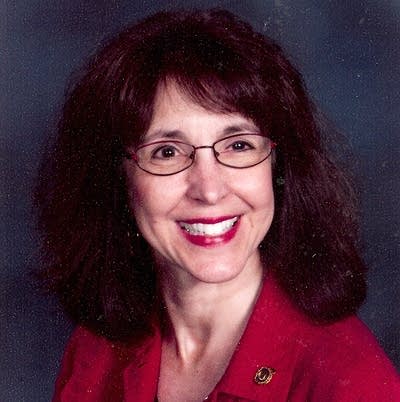Story of Rwandan genocide shows how easily the human tide can turn

I went to Rwanda in the summer of 2005. I traveled around the country for two weeks with a young Rwandan woman, Alice Musabende, who was my guide and translator.
One evening, sitting under the stars by beautiful Lake Kivu in northwest Rwanda, I asked Alice what had happened to her in 1994 during Rwanda's genocide, when nearly a million people were killed in a hundred days.
Alice told me her story, quietly and without emotion.
In 1994 Alice was 14 years old, the same age as my own daughter, Louisa. One day in April Alice's mother asked her to go to the next village on an errand to her cousin's house. Alice was told to come right home. She was a willful child, she says. Her cousins had TV --- and her family did not. She stayed overnight and watched TV with her cousins.
Create a More Connected Minnesota
MPR News is your trusted resource for the news you need. With your support, MPR News brings accessible, courageous journalism and authentic conversation to everyone - free of paywalls and barriers. Your gift makes a difference.
When she got home the next day, she discovered the bodies of her grandparents, her mother and father, her 12-year-old sister, her 9-year-old and 2-year-old brothers.
Her entire family had been killed. Everywhere she went in her town, she said, it was strangely quiet. Everywhere she looked she saw piles of dead bodies.
In that April of 1994, when Alice was 14 years old, she became an orphan of genocide.
Alice's story tore at my heart. What does it take to keep us human, to keep us from killing whole families, whole societies?
I'm a Jew, born after the Holocaust. I grew up with the legacy of the Holocaust in stories, in my nightmares, in knowing of distant relatives who perished in the liquidation of the ghetto in Vilna, Lithuania. I've seen the gas chambers in Auschwitz, the killing fields in Cambodia, the memorials in Rwanda -- and the legacy of genocide in faces of survivors like Alice.
I realized that genocides happen over and over again for complicated reasons --- and for simple reasons. One simple reason is that we let genocide happen.
We don't elect leaders based on their commitment to preventing genocide. We don't make genocide prevention a political, moral or economic priority.
Why should we care?
There are many reasons. The clearest, simplest, most compelling reason is a moral one. Certainly it's morally reprehensible to tolerate the extermination of people based on who they are. But beyond that: If we tolerate this form of mass atrocity somewhere, at some level we tolerate, indeed accept, the inhuman treatment of people everywhere, including in our own communities.
There is no nuance in this issue. We either accept the moral imperative that orders us not to stand by when the blood of our neighbor is spilled -- or we look the other way. If we tolerate genocide in Darfur or atrocities in Burma or sexual mutilation in Congo, we will tolerate racism in our neighborhoods, homophobia in our classrooms, anti-Semitism in our towns. Hate begins small and escalates swiftly and wildly. The slope is a steep and slippery one, one down which we can slide rapidly and irrevocably until we reach a place where our emotions become our actions and hate becomes violence.
Gen. Romeo Dallaire, a Canadian in charge of the U.N. peace-keeping mission in Rwanda during the genocide, says that genocides last for a thousand years -- but are as if they happened yesterday. The impact of the cataclysm in Rwanda endures today, as we see in the current detention of human rights lawyer and professor Peter Erlinder as he raises legal and moral challenges related to the atrocities that happened there.
Gustave Gilbert was an American prison psychologist at the 1946 Nuremberg Trials of Hermann Goering and other Nazi perpetrators of the Holocaust. In the 2000 TV film "Nuremberg," Gilbert is portrayed as telling the Head Prosecutor Robert Jackson, "I told you once that I was searching for the nature of evil. I think I've come close to defining it: a lack of empathy. It's the one characteristic that connects all the defendants: a genuine incapacity to feel with their fellow man. Evil, I think, is the absence of empathy."
Experts say we can teach empathy, to children and to adults. We can simulate the situations that others are in. We can pretend to be someone else. We can wear goggles to learn what it is like to be blind, or spend a day in a wheelchair to understand physical disability, or wear heavy gloves to simulate a loss of coordination. But we can't change our skin color, our ethnicity, our sexual orientation, or many other dimensions of identity. What we can do is read others' words about their lives, listen to them, befriend them. The distance between "us" and "them" will become smaller.
And when that happens, when "they" are no longer different from "me," I will not harm them.
The steps toward this evil begin when we fail to recognize others' equal claim to humanity. If we can have empathy, we will not do evil. Nobody starts out in life to be a perpetrator of genocide -- someone who will make an orphan of a child like Alice.
--
Ellen J. Kennedy, Ph.D., is executive director of World Without Genocide, which says its mission, in part, is to prevent genocide by fighting racism and prejudice.
